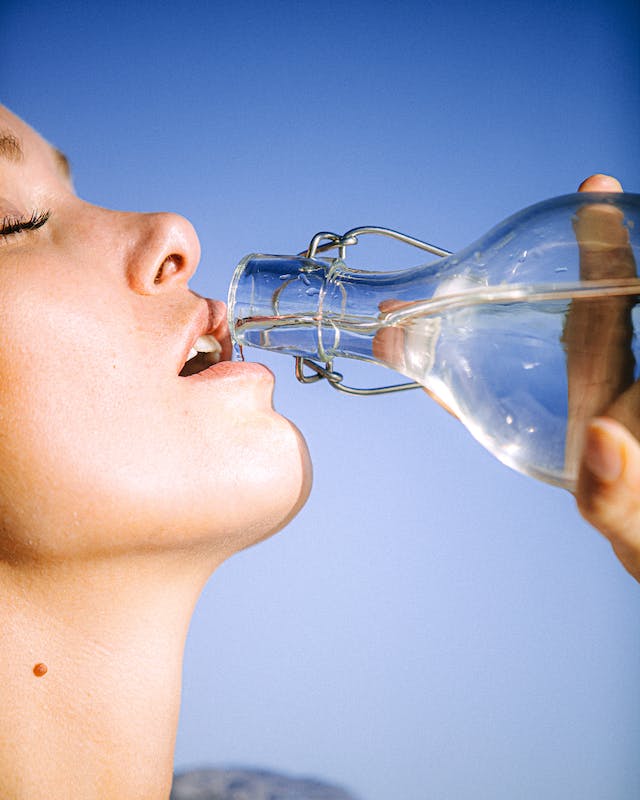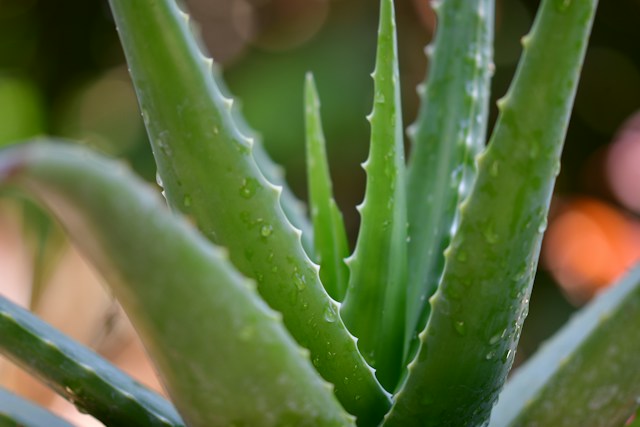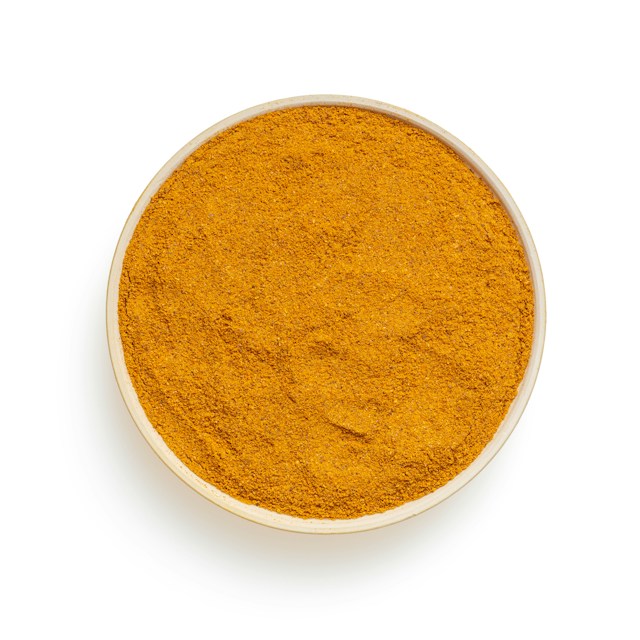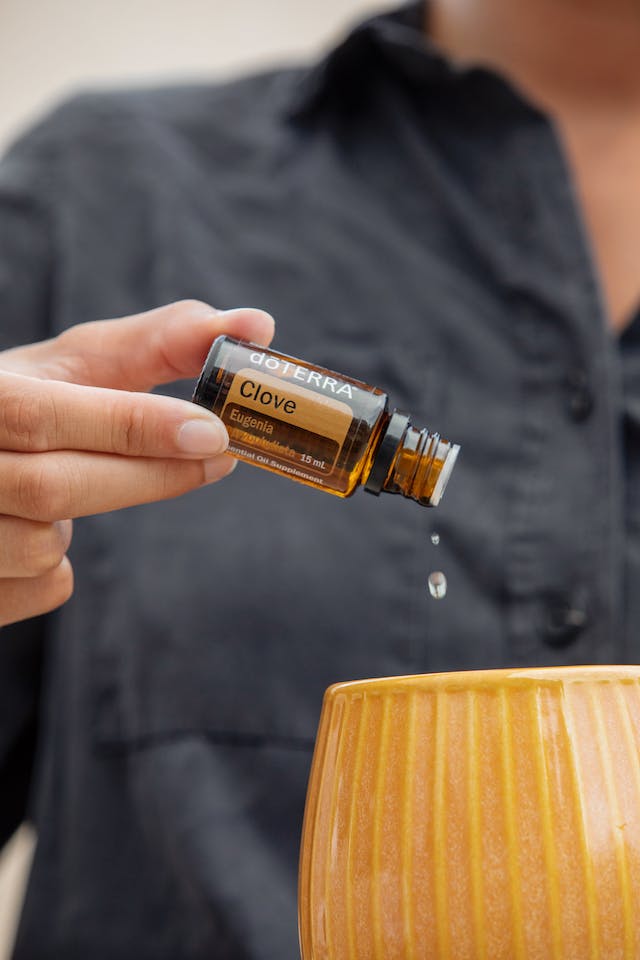Mouth ulcers are excruciating lesions that develop on the mucous membrane within the mouth. It may be unpleasant to eat, drink, or speak because of these ulcers. Although they normally heal in a week or two on their own, certain at-home cures can help reduce the discomfort and expedite the healing process.

Mouth Ulcer Causes
Injury or trauma: Mouth ulcers can occur as a result of biting one’s tongue, lips, or cheek by accident. They can also be brought on by dental equipment (such as braces or dentures), toothbrush abrasions, or vigorous brushing.
Stress or emotional factors: An individual’s immune system may be weakened by high amounts of stress or emotional distress, increasing their risk of mouth ulcers.
Hormonal alterations: Some people may develop mouth ulcers as a result of hormonal imbalances or changes in hormone levels during menstruation.
Food allergies or sensitivities: For those who are vulnerable, some foods—especially those that are hot or acidic—can cause mouth ulcers. Furthermore, certain individuals may have dietary sensitivities that exacerbate the development of ulcers.
Nutritional deficiencies: The risk of developing mouth ulcers may be increased by a deficiency in vital minerals including vitamin B12, zinc, folate, or iron.
Oral hygiene: Not practicing good oral hygiene can cause irritation or bacterial infections in the mouth, which can hasten the development of ulcers.
Immune system problems: HIV/AIDS, certain drugs that inhibit the immune response, and autoimmune disorders (such as Crohn’s disease or Behcet’s disease) are among the conditions that weaken the immune system and can raise the risk of mouth ulcers.
Genetic predisposition: Some people may be predisposed to mouth ulcers due to their genetic makeup.
Signs of Mouth Ulcers
Pain or discomfort: Mouth ulcers can hurt to different degrees, especially when you eat, drink, or talk.
Small, round sores: These ulcers typically have a red border surrounding a white or yellow centre, making them round or oval in appearance.
Area that is sensitive or sore: In the vicinity of the ulcer, you may experience tingling or burning before the ulcer begins.
Eating and drinking difficulties: You may find it difficult to eat or drink some meals, particularly those that are acidic, spicy, or have a rough texture, due to the discomfort produced by mouth ulcers.
Tissues that are swollen, red, or inflamed: The tissues that surround the ulcer may exhibit any of these three characteristics.
Recurrence: Some people have mouth ulcers again and again, occasionally developing new sores.
Fever and overall sensation of illness (rare): In extreme situations, especially if the ulcers are accompanied by additional symptoms like fever and a general feeling of being sick, it may point to a more serious issue that needs to be treated.
Home Remedies That Work Well for Mouth Ulcers
Rinse your mouth many times a day with a mixture of one teaspoon salt and one cup warm water, known as a saltwater rinse. This may lessen discomfort and inflammation.

Honey: Directly dab the ulcer with raw honey. Honey helps hasten the healing process and has antimicrobial qualities.
Coconut oil: Before spitting out a spoonful, swish it around in your mouth for a few minutes. Its antibacterial qualities may promote recovery.
Aloe vera: Directly apply new aloe vera gel to the ulcer. Aloe vera contains calming and anti-inflammatory qualities.

Paste made from baking soda and water: Apply the paste, made from baking soda and water, to the ulcer. This may lessen discomfort and balance acidity.
Chamomile tea: Apply a wet chamomile tea bag directly to the ulcer or use the tea as a mouthwash. Chamomile is a soothing and anti-inflammatory herb.
Turmeric paste: Apply a paste made of water and turmeric powder to the ulcer. Turmeric contains anti-inflammatory and antibacterial qualities.

Cold compress: To numb the region and lessen inflammation, apply a cold compress or an ice cube covered in cloth to the ulcer.
Clove oil: Use a cotton swab to dab a little quantity of clove oil onto the ulcer. Analgesic and antimicrobial qualities are shared by clove oil.

Sage rinse: To make sage rinse, boil sage leaves in water, let cool, and then use the concoction as a mouthwash. Sage possesses antimicrobial qualities.
Vitamin E Oil: To encourage healing and lessen discomfort, apply vitamin E oil directly to the ulcer.
Coriander seeds: To lessen soreness and inflammation, boil coriander seeds in water, drain the mixture, and use it as a mouthwash.
Apple cider vinegar: To make a mouthwash, combine one teaspoon of apple cider vinegar with a glass of water. It can aid in bacterial eradication and healing.
Apply cayenne pepper paste to the ulcer by combining cayenne pepper and water to make a paste. Capsaicin, which is found in cayenne pepper, has the ability to momentarily numb and lessen pain.
You may also like:
Headaches: Quick and Easy Relief at Your Fingertips
Polio Vaccination: What You Need To Know

